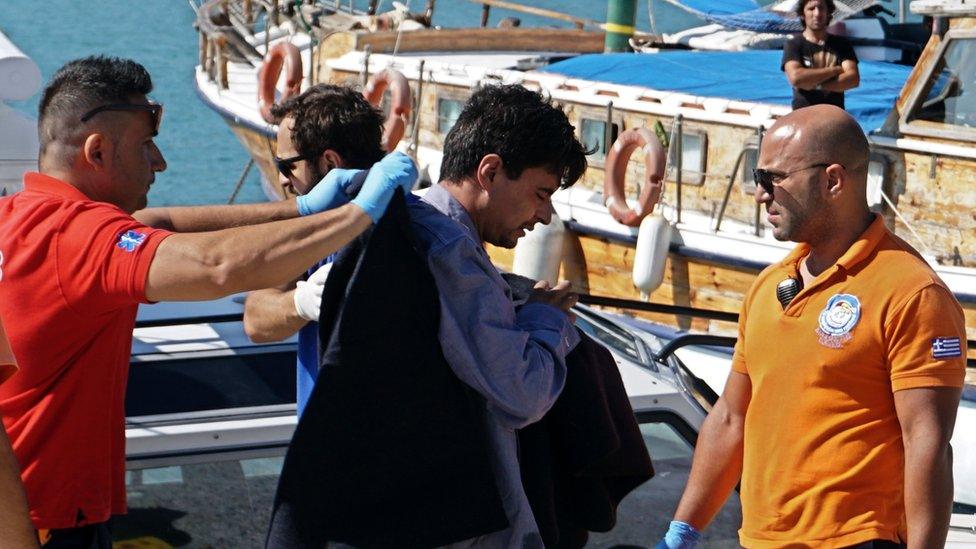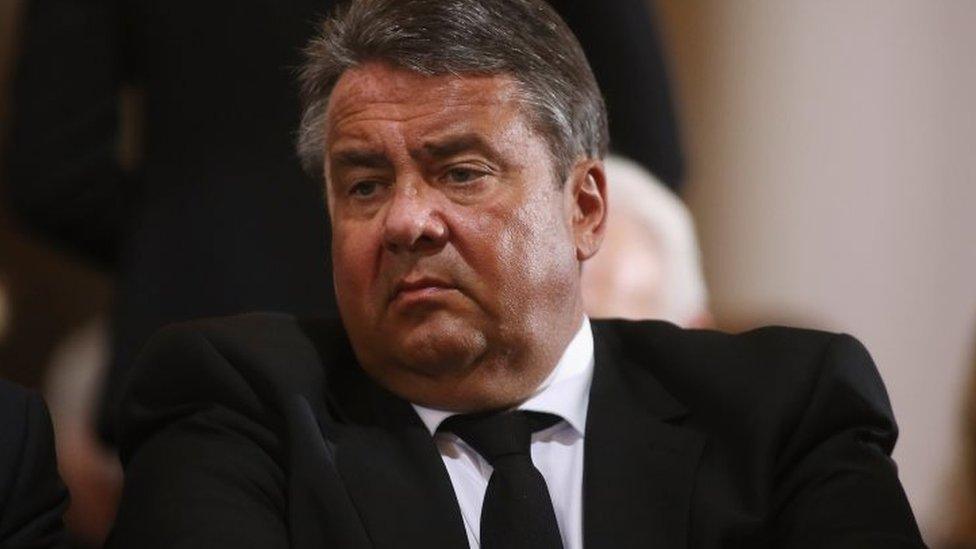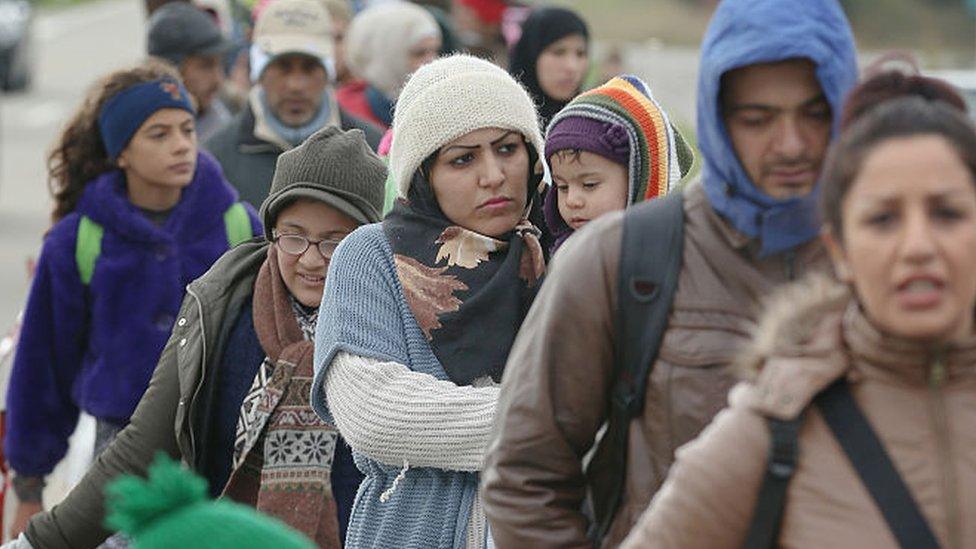Migrant crisis: Germany warns Turkey against 'blackmailing EU'
- Published

Migrants continue to arrive in Turkey though numbers have dropped sharply
Europe must not let itself be blackmailed by Turkey in talks about visa-free travel for Turkish citizens in the EU, German Vice-Chancellor Sigmar Gabriel has said.
Visa-free access to the EU is seen as a reward for Turkey's role in halting an influx of migrants into Europe.
But the move has been delayed because of a row over anti-terror legislation following Turkey's failed coup.
"It's up to Turkey whether there can be visa-travel or not," Mr Gabriel said.
He said Turkey was drastically distancing itself from Europe by "moving towards reintroducing the death penalty" which was a "flagrant contravention of the EU's Charter of Fundamental Rights".

Mr Gabriel said it was up to Turkey to decide whether or not there was visa-free travel for Turks into the EU
He said the charter was "a vital part" of the EU and must be accepted and put into practice if Turkey wanted to be a part of the EU.
"It is up to Turkey to implement the standards and not to make them worse," he said.
Turkish Foreign Minister Mevlut Cavusoglu said over the weekend that he might rescind his country's agreement with the EU to curb the flow of migrants, if the bloc did not in return deliver visa-free travel for Turks.
Germany has urged Turkey to show "proportionality" over the issue - especially in its pursuit of those behind last month's coup.
"It is up to Turkey if there is or there isn't visa liberalisation," Mr Gabriel said. "Germany and Europe should under no circumstances be blackmailed."
The vice-chancellor also welcomed a decision to prevent Turkish President Tayyip Erdogan from addressing via video-link a rally in Cologne on Sunday.
The ban led to the Turkish foreign ministry summoning the German charge d'affaires.

A note on terminology: The BBC uses the term migrant to refer to all people on the move who have yet to complete the legal process of claiming asylum. This group includes people fleeing war-torn countries such as Syria, who are likely to be granted refugee status, as well as people who are seeking jobs and better lives, who governments are likely to rule are economic migrants.
- Published29 July 2016
